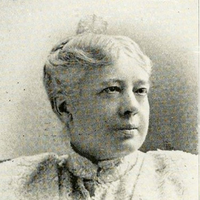
Margaret Elizabeth Sangster
Margaret Elizabeth Sangster (February 22, 1838 – 1912) was an American poet, author, and editor. She was popular in the late 19th and early 20th century.
Margaret Elizabeth Sangster (February 22, 1838 – 1912) was an American poet, author, and editor. She was popular in the late 19th and early 20th century.
Sangster was the daughter of John Munson of Ireland and Margaret Chisholm of New York. Her father was in the marble industry in New York City. Margaret and her younger sister Isabell grew up in a very religious household and the two sisters were well educated.
Sangster held editorial positions with a number of periodicals including, Hearth and Home, The Christian at Work, Harper's Young People and eventually became an editor at Harper’s Bazaar from 1889 to 1899. Through her work she became acquainted with notable people of her age, including Mark Twain and Helen Keller. Other than Harper’s Bazaar, she contributed to Ladies' Home Journal, Hearth and Home, and the Christian Intelligencer, The Christian Union (later became The Outlook), The Congregationalist and The Christian Herald.
Among Sangster's prose works are several volumes of stories for children, and of these, Little Jamie was written when she was seventeen years old. Hours with Girls and Winsome Womanhood were her most popular works. Her volumes of poetry include, Poems of the Household, Home Fairies and Heart Flowers, On the Road Home and Easter Bells. Sangster grew up a devout member of the Dutch Reformed Church and wrote many hymns and sacred texts. These include a setting of the Te Deum Laudamus and a hymn called, Thine is the Power, which gained a fair degree of popularity in its time.[2] In 1902 Sangster wrote the introduction to the book, Happenings in Our Home, a book where a family could record the important events in their lives such as births, deaths, weddings, vacations, and holidays.
Sangster spent most of her life in New York and New Jersey. She married George Sangster in 1858 and essentially gave up writing until after his death in 1871. She never remarried and she died in 1912. Her nephew, Charles Chisholm Brainerd, was married to the author Eleanor Hoyt Brainerd.


